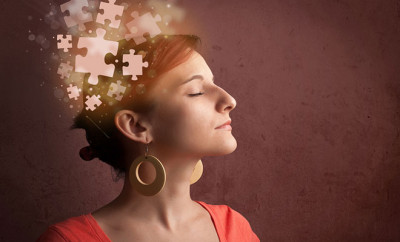
Shining Light on Unconscious Values
The ego, which is the perennial spiritual enemy, is not just an individual entity. Generally, we tend to think of the ego as a personal psychological problem, either our narcissistic self-concern or our painful, neurotic separate self-sense. But ego is also a collective structure, and it has its own value sphere. Ego, in this sense, is a conglomeration of conscious and unconscious values that represent the way we assume life is supposed to be. It is a set of subtle and not-so-subtle beliefs, ideas, and ways of seeing the world that we deeply subscribe to but may not even be aware of. If we aspire to evolve spiritually, these unconscious values may ultimately be a much greater obstacle to our higher development than our personal narcissism or neurosis.
Our values are what define the choices we make, the actions we take, and the life that we create. If you want to know what your values are, just look at your own life. Your life looks like your values. A lot of us think we have higher or spiritual values, but those values are not necessarily reflected in our so-called personal lives.
If you want to evolve—morally, ethically, spiritually—you need to get clear about what these value structures actually are. Unless you can begin to recognize them and articulate them and objectify them in your own experience, you’re going to be tripping over them constantly, and you won’t even know why you’re tripping. Many of us experience a kind of emotional turmoil because we often feel victimized, not free to choose, not in control of our own destiny. We feel trapped by our personal circumstances and intimidated by our own inner conflict and division. The reason we experience this lack of freedom is that the function of choice or free agency is all bound up in our unexamined values. Part of us may aspire to evolve spiritually, but emotionally we are invested in all kinds of unconscious values, beliefs, and convictions that may stand in conflict with that higher aspiration. This is why we often find ourselves experiencing irrational fear, confusion, and ambivalence in relationship to higher potentials that we ourselves have claimed to find very attractive.
If we’re not conscious of the values of our conditioned self-structure, they are going to inhibit our capacity to be a truly awake individual. So it’s imperative, if you want to be an agent of conscious evolution, to bring the light of awareness to the collective ego within yourself. And this is not a psychological perspective, but an evolutionary and cultural one. For example, you can find out a lot about your values by thinking about your family—not your personal relationships with your parents or siblings, but the cultural beliefs and convictions that you were sharing. Of course, we each have a particular personal history, shaped by specific circumstances and experiences. But all of this didn’t take place outside of a cultural context. Consciousness does not evolve in a vacuum. It evolves through structures, through self structures that are part and parcel of intersubjective cultural structures. So that’s why it’s important to look at the ego not just as an individual identity but also as a set of values.
Think about your own childhood: Your parents had certain values, they spent time with friends who shared those values, you were sent to certain schools that expressed their values, and all of this influenced the way your evolving self learned to relate to the world. Were they your values? Did you freely choose them? Probably not. Very few people freely choose their own values. Many of us who have grown up in a postmodern world where the freedom of the individual is valued above all else assume that we have freely chosen our values, but it’s very rarely true.
So the culturally conditioned self, the culturally created ego, is a subject in all of us that needs to be made an object in the light of our own awareness, so that we will be in a position to begin to freely choose who we are and who we will be. And it is not an easy task. It takes an inspired degree of mental focus and a willingness to be rigorous with one’s own thought process.
It’s much, much easier to engage in this kind of focused contemplation together with others, because then you can see how much the same we all are. The things we each struggle with as individuals are variations on the same theme. Of course, we are not perfectly identical but if you are willing to be transparent about your own value structures together with others, you will find that there will be enough similarity that you can begin to see the impersonal and deeply conditioned nature of so much of who you are. And this is very liberating because you see that the ego is an impersonal phenomenon rather than a personal problem. It is a cultural predicament, an evolutionary challenge, more than it is a personal obstacle. This kind of perspective on the conditioned self can give you a lot more courage and inspiration to want to liberate yourself and consciously evolve.
It’s important to understand that “conditioning” is not, by definition, a bad thing. To be conditioned simply means to have been programmed by nature and culture, which is how we all evolve and develop and grow. Conditioning only becomes problematic when you don’t know that you’re conditioned. So if you aspire to become more conscious, you have to begin to shed light on how deeply programmed you have been by biology, culture, history, place, and circumstance, and then initiate the process of freely choosing to be who you want to be. Of course, we could never become completely unconditioned, and we wouldn’t even want to be. But to become what I would consider a truly autonomous individual, we have to be willing to go through a metamorphosis, which can be an excruciating process. We have to, in a sense, die and be reborn again. This is what really rigorous and serious spiritual practice is all about: learning how to freely choose to be yourself. And it’s a much bigger ordeal than most of us are prepared for.
Once your ego’s values have become objectified in your awareness, then you are in a position to begin to freely choose: Is that who I want to be or not? Some of those values may be positive, and you may not want to change them, but what makes the difference now is that they become freely chosen and conscious. Others may be unwholesome, outdated, or simply irrelevant, and these you may intentionally choose to leave behind. This kind of engaged spiritual contemplation is not something you do once and then finish with. It’s a process that needs to be engaged with all the time. The evolution of consciousness is a constant endeavor, a demanding endeavor, and an ultimately thrilling endeavor, because the rewards are ever new.
At this particular time in history, it’s essential that those of us at the leading edge are willing to put everything on the table and dare to reevaluate who we are—not just for our own sake but for the sake of the new culture we need to create. The evolution of culture means the evolution of these internal value structures. We need to understand that the new structures of the future are yet to be formed. They have not yet been created. So deconstructing the collective ego in the way I’ve been describing is the first step towards consciously creating the future, by reorienting the way you think about life. That is what can lead to actual transformation and to a dynamic and meaningful engagement with life that begins to express deeper and higher values. That’s when you become a conscious creator, who is actually forging new structures, not just for yourself but for everyone else. That’s when you become a freely chosen self who has found a place and a profound sense of purpose in an evolving universe.
Shining Light on Your Unconscious Values
Listen to an 8-minute audio clip, in which Andrew guides a retreat participant through this inquiry.
Reprinted with permission for online use from Unbound, © 2008 EnlightenNext. All rights reserved







